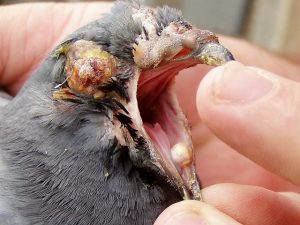Fatty acids are the main fuel for sustained flight in birds. The role of L-carnitine (also known as vitamin BT or vitamin B7) is to help convert dietary fat and body fat into fatty acids. This process occurs in the mitochondria in red muscle fibres.
Mitochondria are the powerhouses of these muscle fibres and are present in large numbers in muscles to handle the demands of fast and sustained flight.
Carnitine is present in large amounts in animal tissues such as cattle and sheep muscle. In plants, however, it is present in very small amounts, so pigeons have little access to carnitine through the diet. It is therefore advisable to supplement the feed with carnitine occasionally. These two periods are typically the racing season and the breeding season.
Racing season
L-carnitine is a useful performance enhancer, but too much of it – like any other enhancer – will take its toll. The recommended dose is 100 mg per kilogram of body weight. It is given over one to two days.
We should be aware that prolonged administration of carnitine has negative effects. If high doses are taken for three or more consecutive days, the body stops producing its own carnitine and it takes time for it to kick in again. This can cause problems in races lasting several days, when the artificially administered carnitine runs out on the second day and the pigeon’s body is not able to restart its own production quickly enough. In such cases, the metabolism of the heart muscle and skeletal muscle is impaired, leading to a reduction in flight performance and, in severe cases, damage to muscle cells.
Accordingly, caution should be exercised when administering carnitine, and treatment should last for a maximum of three days. However, experience has shown that two days is preferable, and even a single application can show visible results. In particular, there is a marked increase in performance in pigeons that have recently been flying less well.
As it is a performance enhancing substance, there are additional negative effects of overdosing on carnitine. Carnitine forces the whole body to perform better through the heart and muscles. However, increased performance always carries the risk of strain or injury. If one or two organs are overloaded, the other organs are overloaded. That is why, if the heart muscle is not damaged by increased carnitine intake, the increased performance of the heart muscle forces the skeletal muscles, ligaments and joints to work harder and more intensively than usual, causing painful and serious, even permanent damage… For this reason, carnitine is given to pigeons only for 1-2 days during the racing season and only at the recommended dose.
Breeding season
The intake of carnitine is recommended both before and during the breeding period because of its positive effects on the reproductive organs. It increases fertility when given for a longer period but in smaller doses.
During the breeding period, carnitine is administered for a longer period but in smaller doses: 50 mg of the active substance in each litre of drinking water.
Note
Do not confuse carnitine with carotene or creatine.
Carnitine: vitamin B7 or vitamin BT.
Carotene: precursor of vitamin A.
Creatine (phosphate): provides the energy for flight.
During the breeding period, carnitine is administered for a longer period but in smaller doses: 50 mg of the active substance in each litre of drinking water.







